- Home
- Peter Ackroyd
Wilkie Collins Page 2
Wilkie Collins Read online
Page 2
He wrote later that his mother was “a woman of remarkable mental culture” who bestowed upon him “whatever of poetry and imagination there may be in my character.” He said on another occasion that he had inherited her “spirits.” She was undoubtedly sociable and sharp-witted, with that independence of temperament that her son gave to his favourite heroines. He described a governess in one of his novels, No Name, as “a woman who looked capable of sending any parents in England to the right-about, if they failed to rate her at her proper value.” Charles Dickens’s daughter described her, in later life, as “a woman of great wit and humour—but a devil!” Kate Dickens was known for her somewhat acerbic asides—she once described Wilkie as being “as bad as he could be” for keeping a mistress—and may have meant no more than that Harriet Collins was occasionally cutting or caustic in conversation.
—
In the second year of Collins’s life the family spent the summer and autumn in a cottage in Hendon; soon after their return, in the spring of 1826, they moved from New Cavendish Street to Pond Street by Hampstead Green. Theirs was the second house in a row of small houses running down a hill, in a spot now covered by the Royal Free Hospital. Hampstead became for Collins another sacred spot. It is of course the setting for the first appearance of the woman in white, at the junction of Finchley Road with West End Lane and Frognal Lane, and was in Collins’s childhood a village among the fields. His father was therefore, according to Collins, “surrounded by some of the prettiest and most varied inland scenery that this part of England presents.” The family was enlarged here by the birth of Charles Allston Collins, at the beginning of 1828.
In his own account the childhood of Wilkie Collins was an unexceptionable if happy one. “Tell Willy,” his father wrote, “I have this day picked up two nice little scuttle-fish bones for him.” William Collins sketched his infant son, showing his nervous and delicate features with the slight protuberance above his temple. The novelist remembered sitting on the knee of his godfather, Sir David Wilkie, and watching him draw cats and dogs and horses. He went skating with his younger brother, and averaged thirty tumbles on each outing.
There were the usual family holidays. In the summer of 1829 they travelled to Boulogne for six weeks, in the hope that a change of air might restore the health of his ailing grandmother. They rented a house in the marketplace, from the window of which William Collins sketched the more picturesque aspects of French peasant life. It was here that the young boy was told one of those melodramatic stories that made such an impression upon his imagination. Years later he remembered how a Boulogne fisherman had rescued a black seaman from a shipwreck; the mariner was refused admission to any house, as a result of the restrictions of quarantine, and so the fisherman lay alongside the man all night “endeavouring to restore the dying negro by the vital warmth of his own body.” His efforts, unhappily, did not succeed.
In the early autumn of the year the Collins family migrated to Ramsgate, a resort to which Wilkie returned throughout his life. In his early years there was really nothing there except the sea, but the sea haunted Collins like a passion; in the dusty streets of London he longed for it and scarcely a year passed without a visit to Broadstairs or Ramsgate—or even further afield, to Cornwall or the Isle of Man.
They had moved to a larger house in Hampstead Square but then a year later, in 1830, they made the journey south to Bayswater. The house in Porchester Terrace lay at a distance from “the Oven” or “the Great Wen,” as London was known, but it was not immune from the agitation of the larger world. Collins remembered the demonstrations of 1832 surrounding the passage of the great Reform Bill. “My poor father,” he wrote, “was informed that he would have his windows broken if he failed to illuminate”; that is, he was obliged to put a lamp or candle in every window. The two boys were “mad with delight,” and saw the demonstrators “marching six abreast (the people were in earnest in those days) provided with stones.” William Collins himself was a high Tory, and did not look with favour upon such celebrations. He may have been the inspiration for a dinner party in The Moonstone when one of the company “growing hot at cheese and salad time, about the spread of democracy in England, burst out as follows: ‘If we once lose our ancient safeguards, I beg to ask you, what have we got left?’…”
William Collins also had more private complaints. In the summer of 1833 he reported to his wife, from the country house of a patron, that “my nerves are stronger and the pain in my face is fast decreasing.” He wrote in his diary that “I am sadly low in mind at times, and in body weak.” It is tempting to see the laws of heredity in operation. Both Wilkie and Charles Collins suffered from “nerves” and Wilkie, in particular, was plagued by pains in his face and eyes. Mrs. Collins was also treated for “nerves” in Brighton. This was an age of anxiety and in one of his novels Collins described “these days of insidious nervous exhaustion and subtly-spreading nervous malady.” Far from being the boisterous and confident masters of empire, the Victorians were prey to nervous derangement as a consequence of what they called “the battle of life.”
At the beginning of 1835, at the age of eleven, Wilkie Collins was enrolled at the Maida Hill Academy, a day school just off the Edgware Road. He seems to have been a model pupil because, at the end of his first year, he won as first prize in class a two-volume set of Southey’s Essays. He kept the books in his library for the rest of his life. In the schoolboy community, however, success is not necessarily applauded. In an essay he wrote that “the idle boys deserted him as a traitor, the workers regarded him as a rival; and the previous winner gave him a thrashing.” Wilkie Colllins did not like school.
He was also finding out for himself the joys of private reading. He devoured his mother’s collection of Gothic romances while discovering such staples of childhood as The Arabian Nights, Robin Hood and Don Quixote. He worshipped Walter Scott and admired Byron. It might plausibly be suggested that he always preferred “light” reading; he was by no means a scholar or an intellectual, and preferred adventure to analysis.
On his frequent trips away from home William Collins tried to supervise his sons’ moral education. “Tell the dear children,” he instructed his wife, “that the only way they can serve their parents is to obey them in all things: let Charley find out the passages in Scripture where this duty is most strongly insisted on, and write them down for me.” He urged the boys themselves to “go on praying to God, through Jesus Christ, to enable you, by his Holy Spirit, to be blessings to your parents.”
These moral admonitions may have meant very little to Wilkie Collins. In later life he scorned pious sentiment. “You keep on cramming church down his throat,” the father of one six-year-old boy is told in Hide and Seek, “and he keeps puking on it as if it was physic…Is that the way to make him take kindly to religious teaching?”
Yet the father’s sense of religious obligation does not seem to have curtailed the social life of his family. He of course knew many of the eminent artists of the period, but his acquaintance stretched to the more interesting poets. Samuel Taylor Coleridge, for example, seems to have struck up a friendship with Mrs. Collins. Wilkie once recalled to a friend an occasion when the poet broke down in tears while describing to her his addiction to opium. “Mr. Coleridge, do not cry,” he remembered her as saying, “if the opium really does you any good, and you must have it, why do you not go and get it?” Since Wilkie was himself at this time addicted to laudanum, his precocious memory may have had something to do with self-justification.
In this childhood period Wilkie, by his own account, seems to have suffered from the afflictions of first love. She was the wife of one of his neighbours, three times his age. He was so obsessed by her that he took a violent dislike to her husband and ran away whenever he encountered him. He could not of course take a “liberty” with her, and so he suffered in silence. His susceptibility to women is obvious throughout his life, and he seems to have been in love with half of his female acquaintance. He needed th
e society of women and, with two mistresses to keep him company for much of his life, he clearly needed more intimate attentions. He told his friends, in later life, that his sexual initiation came under a foreign sky.
CHAPTER THREE
The Pilgrimage
At nine o’clock on the morning of Monday 19 September 1836, the Collins family took a “fly” to Piccadilly where they picked up the Dover coach. They were on their way to Italy. The journey had long been discussed. Sir David Wilkie had suggested to William Collins that a study of the Italian masters would prove invaluable to his own art. Collins hesitated, unwilling to break off his sons’ education at a sensitive stage, but Sir David Wilkie and other friends persuaded him that the boys would gain more profit from the experience than in the study of schoolbooks. And so it proved. Wilkie Collins, twenty-five years later, said that he had learned more in Italy “which has since been of use to me, among the pictures, the scenery and the people, than ever I learnt at school.” Italy was the dream of the hard-pressed, weary and anxious Victorians. It was the home of sensation and of ease, of colour and of sunlight; it represented soul and spirit rather than money and materialism.
The Collins family took the steamboat from Dover to Boulogne; four days later they arrived in Paris. His parents did not care for the city; they did not like the smells and, according to Mrs. Collins, there were “no shops to be compared to Regent Street.” Wilkie loved it. In later life it became his city of choice; he admired the scenic pageant of the boulevards and the vivacity of the people. Mrs. Collins disliked the food also—“tough mutton,” she wrote, “but glad of anything plain.” Her son, in contrast, became something of a gourmand.
They made their slow way south towards the Mediterranean. Martigues, just beyond Arles, was “furnished with one small inn, the master of which, never having seen an Englishman before, sat down to dinner with his customers, and kept his cap on with edifying independence.” So Wilkie wrote in his memoir of his father. They travelled on to Marseilles, which according to Mrs. Collins “smelled in a disgusting manner.” It was soon time to move on to Cannes and to Nice, where they remained for six weeks.
Italy beckoned just beyond the frontier. In the middle of December they hired a carriage to Genoa, William Collins leaning out of the window in order to sketch “the wild torrents—the mighty precipices—the cloud-topped mountains” that they passed along the Cornice road. His father said that the scenery “nearly drove him mad.” A steamship took them to Livorno, from where they proceeded to Florence. A journey by way of Siena and the Apennines brought them to Rome, where William Collins believed that he had reached “the shrine of his pilgrimage.” The family stayed here until the spring. They found lodgings in the Via Felice, where in a niche a Madonna rose above cabbage stalks and general rubbish. William Collins settled to some serious painting, in a borrowed studio, but even from the window of his apartment he was enchanted by what he saw of the Romans “in their carelessness of repose, in their unconscious sublimity of action, in their natural graces of line and composition.” Wilkie took up Italian lessons.
The family saw everything. They visited the Vatican and the Sistine Chapel; they went to the horse races; they admired the Colosseum, “doubly mysterious and sublime in the dim, fading light”; they attended the opera and the ballet; they watched all the ceremonies of Holy Week, with the two boys racing to St. Peter’s to see the washing of the pilgrims’ feet; they sauntered on the Pincian Hill, which became the setting for Collins’s first published novel, Antonina. “Who,” he wrote, “after toiling through the wonders of the dark, melancholy city has not been revived by a visit to its shady walks and by breathing its fragrant breezes?”
He came to reminisce, too, about “the magnificent Roman women of the people…gossiping and nursing their children” in the streets. One woman, in particular, caught his eye. Charles Dickens repeated the story in a letter to his sister-in-law. He said that Collins “gave us…in a carriage one day, a full account of his first love adventure. It was at Rome it seemed, and proceeded, if I may be allowed the expression, to the utmost extremities—he came out quite a pagan Jupiter in the business.” He may have been exaggerating, in a fit of male bravura, but it is perfectly possible that a thirteen-year-old boy could seduce or be seduced by an older woman.
It may be surmised, in fact, that Wilkie was becoming something of a voluptuary or at least a young man whose sexual awareness was awakened early. “I think the back view of a finely formed woman the loveliest view,” he wrote at the age of sixty-three, “and her hips the most precious parts of that view.” He dwells with loving care on the descriptions of his female characters, so that the figure of one of them is “slender, but already well developed in its slenderness, and exquisitely supple.” When the American photographer Sarony sent him a selection of female nudes he pored over them, and particularly admired a “Venus” about to enter her bath; he framed it and placed it on his desk. In Antonina Vetranio, a wealthy Roman, asks his slave merchants to send him the most beautiful women in the empire so that they can be displayed before him “of every shade in complexion and of every peculiarity in form.” It is not hard to see the predilection of the author as well as the lust of the character.
He mentioned to Sarony that his ideal was the “Venus Callipygian,” a statue that he may have seen in the National Museum of Naples on the next stage of the Italian tour. It is the back view of a woman with very prominent shapely buttocks, and Collins told the photographer that “my life has been passed in trying to find a living woman who is like her—and in never succeeding.” So, perhaps, he was always in pursuit of the ideal fantasy. This may account for the evident fact that in his fiction the women are rarely as physically vivid as the men; the females are often idealised rather than described, whereas the males come alive with a sudden concrete or striking detail. His fondness for women may have impeded his muse.
From Rome, at the beginning of May, the Collins family travelled to Naples. For three weeks William Collins sketched the bay and the coastline, together with the fishing-craft and the fishermen; he also found fresh material in “the great army of vagabonds, male and female, eating, drinking and sleeping in the streets.” He was about to embark on more extensive projects, when the family began to notice “strange-looking yellow sedan chairs, with closed windows” passing in the streets; the passengers had all been stricken with cholera. The fear of quarantine was now upon the family.
So they repaired at some speed to Sorrento on the other side of the bay. It ought to have been an ideal retreat but the heat of the southern Italian summer may have affected them. In her diary Mrs. Collins professed to be “quite overcome” and then noted that “Willy very tiresome all day. His father obliged to punish him at dinner-time. Made us all miserable.” The boy then locked his mother on the roof; whether by accident, or design, is not clear. Collins himself now fell ill with rheumatism and inflammation of the eyes, complaints which would one day cripple his son. Camphor and castor oil did not ease his suffering, and the sulphur baths of Ischia were recommended.
So the family set sail to the little island. Collins began to recover here, but his oldest son was in ill humour. “Willy in disgrace again.” When they returned to Naples, at the lifting of the epidemic, Charles Collins managed to break his arm. It would seem now that the Italian adventure was over. In early February they left Naples and returned to Rome. From there it was a leisurely progress towards home, taking in Venice, Bologna, Parma, Verona and Padua on the way. The final journey took them down the Rhone to Cologne and Rotterdam. When they arrived in London on 15 August 1838, they had been away for almost two years.
There is no doubt that the young Wilkie Collins was thoroughly changed by the experience. His natural education had been advanced and, unlike most young men of his position, he had observed and lived in a society quite different from that of middle-class England. He had learned to read French and to gabble in Italian. He may also have been fortunate enough to have had his first
sexual experience. He felt himself to be different.
Yet once more he was obliged to endure the company of London schoolboys. On the family’s return they moved to a house in familiar territory close to Regent’s Park, 20 Avenue Road, and Collins was soon despatched to a boarding school in the northern region of Highbury. Henry Cole’s Academy, overlooking Highbury Fields, was not a public school in the grand manner, but it was respectable and relatively inexpensive at £90 per year. The Reverend Cole was also minister of the Providence Chapel in Islington.
Wilkie was still close to home, and does not seem to have suffered the martyrdoms that have afflicted other sensitive English schoolboys. The prefect in his dormitory, however, seems to have been something of a tyrant. According to Wilkie he “was as fond of hearing stories when he had retired for the night as the Oriental despot to whose literary tastes we are indebted for The Arabian Nights.” He would tell the hapless schoolboy that “you will go to sleep, Collins, when you have told me a story.” If Wilkie did well, he was given a pastry; if he failed to entertain he felt the cat-o’-nine-tails. This itself is a good story, and may have been embellished in the telling, but it suggests that his characteristic gift was appreciated. Wilkie already had some skill at reading aloud. He recited passages from Mary Shelley’s Frankenstein and Matthew Lewis’s The Monk to his aunt and her assorted guests, from whom the response was “Lord!,” “Oh!,” “Ah!” and “Good gracious!” He liked to make the flesh creep. “Your hair is uncommonly smooth at the present moment,” one of his characters says, “but it will be all standing on end before I’ve done.”
Wilkie had other memories of the academy. He seems to have acquired a reputation for idleness and inattention. “If it had been Collins,” he recalled one master as saying, “I should not have felt shocked and surprised. Nobody expects anything of him. But You!!—etcetera etcetera.” The fact that he had mastered the elements of French, evident in his lessons, probably marked him as an outsider. He was more worldly wise, and more travelled, than any of his contemporaries. Two of his letters from school to his mother are in Italian, written less as an exercise than as a cipher to evade the prying eyes of his masters. In that language he calls the academy “the prison” and “this cursed place.” It is clear enough that he did not believe he belonged there. His general oddity, or eccentricity, would not in any case have recommended itself to average English boys.

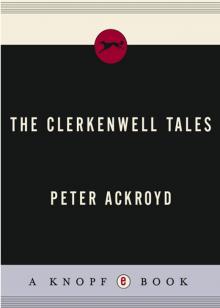 The Clerkenwell Tales
The Clerkenwell Tales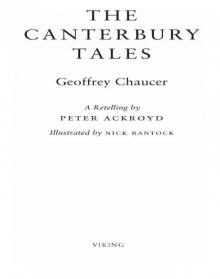 The Canterbury Tales
The Canterbury Tales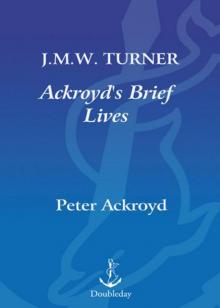 J. M. W. Turner
J. M. W. Turner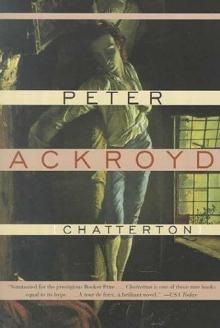 Chatterton
Chatterton The Canterbury Tales – A Retelling
The Canterbury Tales – A Retelling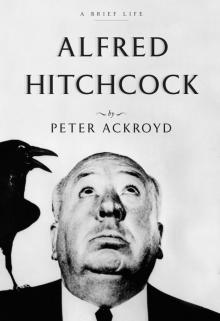 Alfred Hitchcock
Alfred Hitchcock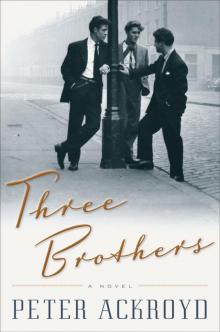 Three Brothers
Three Brothers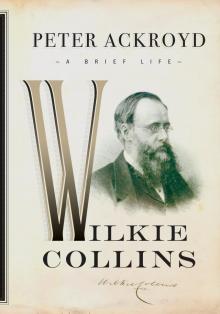 Wilkie Collins
Wilkie Collins Venice
Venice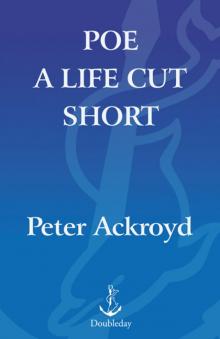 Poe
Poe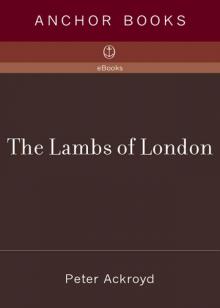 The Lambs of London
The Lambs of London London
London Queer City
Queer City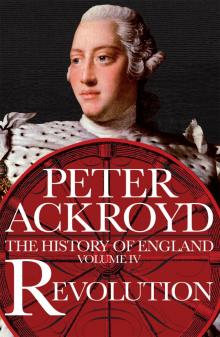 Revolution, a History of England, Volume 4
Revolution, a History of England, Volume 4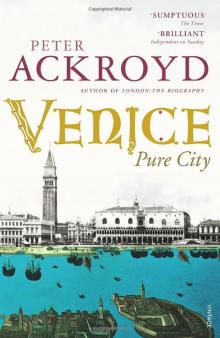 Venice: Pure City
Venice: Pure City Foundation
Foundation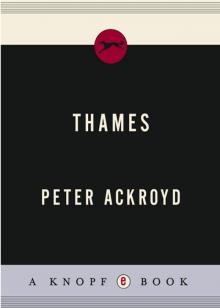 Thames
Thames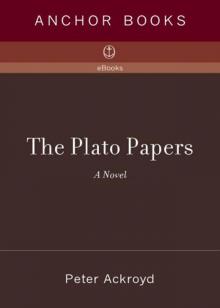 The Plato Papers
The Plato Papers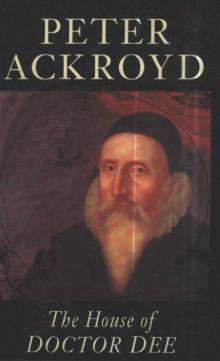 The house of Doctor Dee
The house of Doctor Dee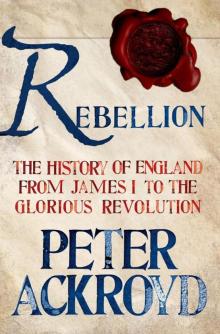 Rebellion: The History of England from James I to the Glorious Revolution
Rebellion: The History of England from James I to the Glorious Revolution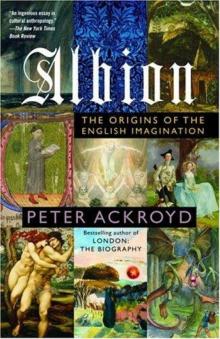 Albion: The Origins of the English Imagination
Albion: The Origins of the English Imagination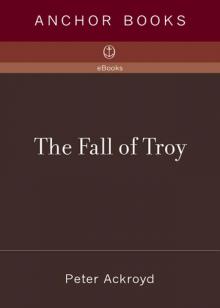 The Fall of Troy
The Fall of Troy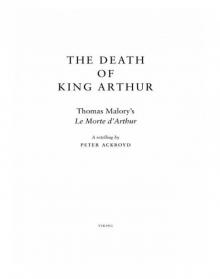 The Death of King Arthur
The Death of King Arthur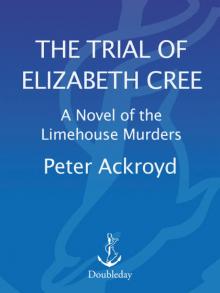 The Trial of Elizabeth Cree
The Trial of Elizabeth Cree London: The Biography
London: The Biography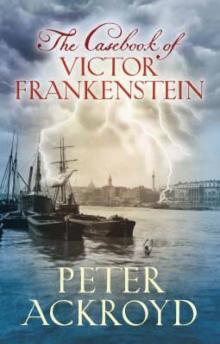 The Casebook of Victor Frankenstein
The Casebook of Victor Frankenstein Hawksmoor
Hawksmoor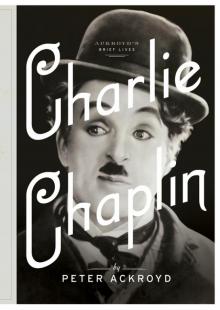 Charlie Chaplin
Charlie Chaplin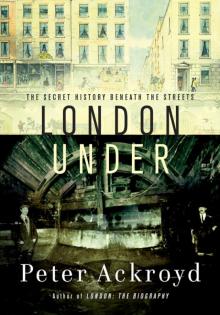 London Under
London Under